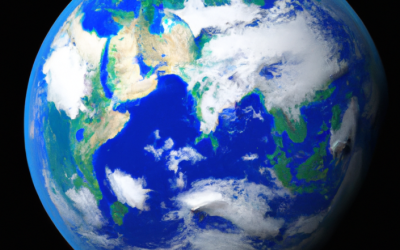Chris Essex remembers 1988 as the year the global warming scare really heated up. That summer was a scorcher. There were droughts in the midwest and wildfires in the west. Al Gore convened his climate hearings, and one high-profile scientist said he was “99 per cent certain” that humans were responsible for global warming.
Dr. Essex and his friends — fellow scientists — were stunned. “He’s gone too far,” they agreed.
Since then, Dr. Essex has watched the world of official science diverge more and more sharply from the world of real science. He has watched the doctrine of global warming gain such a grip on popular opinion and official policy that it is now virtually unquestioned. Even people who oppose the Kyoto Protocol, which Canada is expected to ratify next week, don’t challenge the science of climate change. Instead, they say that Kyoto will be too costly, or that it shouldn’t be implemented until the costs are known.
Meantime, serious scientists have given up trying to explain to the public just why the entire edifice of global warming is an intellectual house of cards. “Over the past 10 years, the voice of scientists has disappeared from the discussion,” says Dr. Essex. “We’re like spectators with our noses pressed up against the glass.”
Dr. Essex is a serious player in the world of climate science. A professor at the University of Western Ontario, he specializes in the underlying mathematics, physics and computation of complex dynamical processes such as climate. Now he and Ross McKitrick, an economics professor at Guelph, have published a new book that sets out to explain the limitations of climate-change science to a scientifically challenged public. The book, Taken By Storm,is both irreverent and devastating. Whether it will make a difference is anyone’s guess. As Dr. Essex says, “We’re about as welcome as skeptics at a seance.”
Dr. Essex and Dr. McKitrick effectively demolish most of what you think you know. For example, they explain why the concept of one big “global temperature” is meaningless. They explain that some of the central problems of climate science, such as turbulence, remain uncracked. And they explain the serious limitations of climate models, which spit out all the forecasts and predictions that form the basis for Kyoto. (Dr. Essex is an expert in all the things computers can do to get the totally wrong number.)
About the only certainty they leave unchallenged is that the climate is, indeed, changing. Always has, always will. Almost everything else remains a matter of significant debate. “On the core issues,” they conclude, “we are confronted by an absence of knowledge.” Contrary to popular opinion, this conclusion is not confined to scientific mavericks. It’s shared by most leading climate scientists.
But the real eye opener is their account of how the politics of global warming has produced a doctrine of certainty in public discourse. It starts with pressure from environmentalists and the public, who convince policymakers that something should be done, who appoint sympathetic experts to head up massive studies, who hire like-minded people to carry them out, which are then synthesized by bureaucrats into executive summaries from which all doubt and uncertainty have been stripped away. These summaries are said to be the “consensus view,” and are used as the ultimate authority invoked by politicians to justify their calls for urgent action.
Dr. Essex and Dr. McKitrick call this phenomenon “the convection of certainty.” This certainty is then amplified by the media, which search out stories that appear to further prove the doctrine. Is the ice melting early in the Arctic? Must be global warming.
“Lots of stuff gets published in the scientific literature that throws a monkey wrench into the story,” says Dr. McKitrick. “But we never hear much about it.” Instead, the uncertainty of the field has given way to the certainty of policymakers and politicians. Even the oil industry doesn’t publicly question the underlying science. It would be like speaking out against motherhood.
According to David Suzuki, anyone who casts doubt on climate change is in the pocket of Big Oil. But the real story is how science has been corrupted by the official doctrine. Governments, including Canada’s, hand out millions to people to conduct research into climate change — but only if the research confirms the central thesis. No others need apply.
In 1994, Craig Bohren, an atmospheric physicist at Penn State, made an impassioned speech lamenting what the global warming issue was doing to his profession. “The government’s response to clamouring from an electorate frightened by global warmers to do something about global warming is to recklessly toss money to the wind, where it is eagerly grasped by various opportunists and porch-climbers,” he said. “Incompetent, dishonest, opportunistic, porch-climbing scientists will provide certainty where none exists, thereby driving out of circulation those scientists who can only confess to honest ignorance and uncertainty.”
At its core, the doctrine of global warming is deeply anti-intellectual and anti-scientific. That’s because it pretends to certainty and dismisses debate. Yet doubt, uncertainty and skepticism are exactly what good science is all about.
“The whole way you become a scientist is not believing in experts,” says Dr. Essex. “Most scientists feel quite squeamish about the idea of consensus.”
I suspect that our belief in global warming is at root theological. The tendency to blame ourselves for natural calamities dates back to the dawn of time. Floods and fire, droughts and locusts, were signs that humans had made the gods angry. Eighteenth-century European chronicles are full of accounts of crop failures and plague that must have been brought on by human sin. Today, there is widespread unease that our chief sin is materialism and progress. The signs (melting Arctic ice etc.) are everywhere. There is no time to waste. If we do not atone, we’ll destroy the planet.
To say otherwise is like standing up in church and yelling God is dead.
For more about the shaky science of climate change, check out the Web site of Bjorn Lomborg, author of The Skeptical Environmentalist; the Web site for the Science and Environmental Policy Project, run by scientist Fred Singer; and speeches and interviews by MIT meteorologist Richard Lindzen.
You can order the book “Taken by Storm” online from our website


